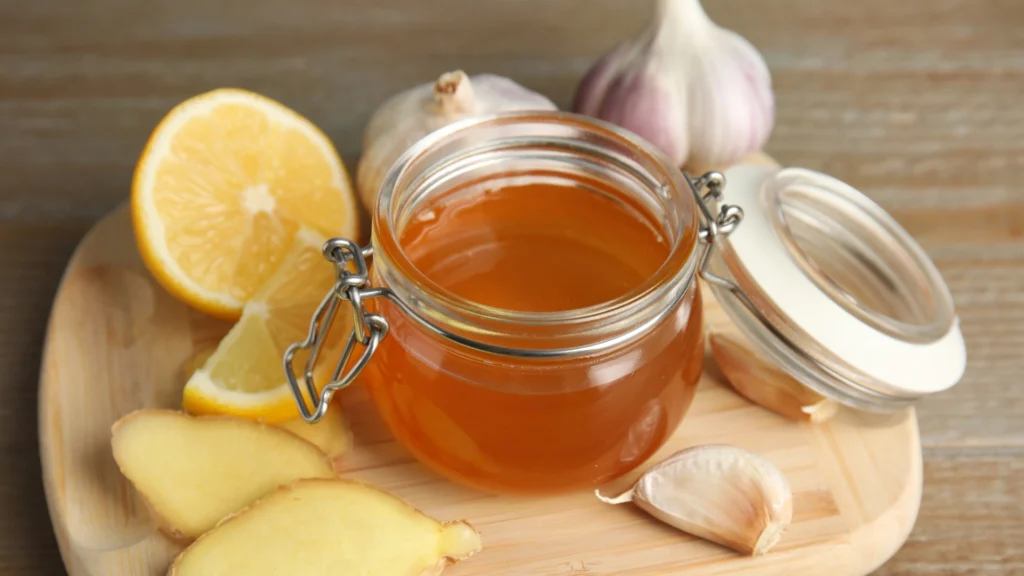
Is a sore throat making it hard to enjoy your day? Whether it’s a scratchy feeling when you talk or a sharp pain when you swallow, a sore throat can quickly disrupt your daily routine. From difficulty eating to interrupted sleep, this common condition affects millions of people each year. Natural remedies have gained significant attention because they offer relief without synthetic chemicals.
In fact, many people are turning to nature’s medicine cabinet and holistic medicine for effective, affordable, and gentle solutions free of harsh side effects. In this article, we’ll share the best natural and holistic remedies to soothe sore throat symptoms quickly and effectively. Say goodbye to discomfort and hello to easy, practical solutions you can try at home today.
Sore Throat: Causes and Symptoms
A sore throat refers to discomfort, pain, or irritation in the throat, often aggravated by swallowing or speaking. It is a common condition that can range from mild irritation to severe pain. Sore throats are not a disease but a symptom of various underlying conditions.
There are three main types of sore throats:
- Viral sore throats – Caused by infections like the common cold, flu, or mononucleosis. These are the most common and usually resolve on their own.
- Bacterial sore throats – Caused by bacterial infections like strep throat (Streptococcus pyogenes). These require antibiotic treatment in most cases.
- Irritant-induced sore throats – Triggered by environmental factors such as dry air, smoking, pollutants, or allergens.
A sore throat can have many triggers, each affecting the throat in different ways. Understanding the root cause is crucial for determining the best course of relief. Broadly, sore throats stem from infections or environmental irritants, which inflame the throat tissues and cause discomfort. Here are the most common culprits:
Viral Infections: Viral infections are the most frequent cause of sore throats. Illnesses like the common cold, flu, or even mononucleosis can irritate the throat as part of their symptoms. Viral infections often resolve independently but can cause considerable discomfort in the meantime.
Bacterial Infections: Sore throats caused by bacteria, such as strep throat (Streptococcus pyogenes), are less common but more severe. They often come with symptoms like fever, swollen tonsils, and white patches in the throat. Bacterial infections typically require antibiotics for effective treatment.
Environmental Factors: Everyday irritants can also lead to a sore throat. These include:
- Dry air: Especially during winter or in air-conditioned spaces, dry air can dehydrate throat tissues, causing irritation.
- Allergens: Pollen, dust, mold, and pet dander can trigger allergic reactions that inflame the throat.
- Pollutants or smoke: Exposure to cigarette smoke, secondhand smoke, or air pollution can irritate and damage throat tissues over time.
A sore throat typically presents with various symptoms, ranging from mild discomfort to severe pain. Recognizing these symptoms can help identify the cause and severity of the condition:
- Pain or scratchiness: A raw, irritated feeling in the throat that worsens when swallowing or talking.
- Difficulty swallowing: Swelling and pain in the throat can make eating or drinking uncomfortable.
- Swollen glands: The lymph nodes in the neck may become tender and enlarged.
- Hoarseness: Inflammation of the vocal cords can lead to a raspy or muffled voice.
- Fever and fatigue: Common with bacterial infections, fever often accompanies other symptoms like chills or body aches.
- Visible redness or white patches: In cases of bacterial infections like strep throat, the throat may appear red, with white or yellow spots.
While many sore throats are minor and resolve quickly, severe cases require prompt medical care. Contact a doctor if you experience:
- A sore throat lasting longer than one week without improvement.
- High fever (above 101°F or 38.3°C).
- Difficulty breathing or swallowing.
- Blood in saliva or mucus.
- Severe throat pain or swelling.
The Benefits of Natural Remedies

Natural remedies for sore throat relief have gained immense popularity due to their numerous advantages. Unlike synthetic medications, which often come with a risk of side effects or chemical exposure, natural remedies focus on using ingredients readily available in nature to soothe and heal the throat. Let’s explore why these remedies are worth considering:
Avoidance of Synthetic Chemicals
One of the core principles of holistic medicine is avoiding synthetic compounds. Many synthetic medications for sore throats contain preservatives, artificial flavors, or synthetic compounds, which some individuals may wish to avoid due to allergies or personal preferences. Natural options eliminate this risk by offering herbal teas, salt water, and honey that work gently without introducing foreign chemicals into the body.
For example:
- Honey, a natural antibacterial agent, coats the throat and reduces inflammation without any harmful additives.
- Chamomile tea contains anti-inflammatory properties that ease throat irritation while promoting relaxation.
Reduced Risk of Side Effects
Synthetic treatments, such as lozenges, sprays, or over-the-counter medications, can sometimes lead to side effects like drowsiness, allergic reactions, or digestive issues. Natural remedies, when used appropriately, pose a significantly lower risk of such adverse effects.
- Remedies like ginger tea or warm salt water gargles target sore throat symptoms without disrupting the body’s overall balance.
- Unlike chemical sprays, these treatments don’t carry the risk of overuse or dependency.
A study even highlights how honey, when used as a natural remedy for throat pain, led to fewer complications and improved recovery rates compared to synthetic treatments.
Cost-Effectiveness
Natural remedies are often more affordable than pharmaceutical treatments. Many of the ingredients used in these remedies, such as salt, ginger, lemon, and honey, are staples found in most households. This affordability makes holistic medicine an excellent option for managing sore throats.
- A cup of herbal tea costs just a fraction of throat lozenges or prescription medications.
- Apple cider vinegar, another effective natural remedy, can be used for multiple health purposes, further increasing its value.
Additionally, the ease of preparing these remedies at home eliminates the need for frequent pharmacy visits, saving both time and money.
Accessibility of Natural Ingredients
Natural remedies are easily accessible, even in remote areas where pharmacies might not be nearby. Ingredients like warm water, lemon, or salt can be found in almost any kitchen. Herbs such as chamomile or marshmallow root are readily available at health food stores or online.
- Warm salt water gargles, for instance, require only two common ingredients: salt and water.
- Ginger tea or chews can be prepared fresh at home using a simple ginger root available at local markets.
The accessibility of these remedies ensures that relief is available anytime, anywhere, without needing a prescription or doctor’s visit.
Top Natural Remedies for Sore Throat Relief

Holistic medicine provides many remedies that address sore throat symptoms naturally and effectively. Here are the top holistic remedies for sore throat relief:
Warm Salt Water Gargle
A warm salt water gargle is a simple yet highly effective remedy for a sore throat. The salt helps draw out moisture from inflamed throat tissues, reducing swelling and discomfort. Additionally, it creates a hostile environment for bacteria, which may contribute to throat infections. To prepare, dissolve half a teaspoon of salt in a glass of warm water and gargle several times a day. This remedy works best when done regularly, especially after meals or in the morning and evening.
Honey and Lemon Tea
Honey and lemon tea is a comforting remedy that combines the antibacterial properties of honey with the vitamin C boost from lemon. Honey coats the throat, soothing irritation and reducing coughing, while lemon helps break down mucus and provides immune support. Mix a tablespoon of honey and a squeeze of fresh lemon juice into warm water or tea. Sip this mixture slowly for immediate relief from throat pain and dryness.
Ginger Tea or Chews
Ginger is a natural anti-inflammatory and antibacterial agent, making it an excellent remedy for sore throats caused by infection or irritation. Drinking ginger tea or chewing on small pieces of fresh ginger helps reduce swelling and discomfort while promoting circulation. To make ginger tea, slice fresh ginger root, boil it in water for 10–15 minutes, and sweeten with honey if desired. Its warming properties provide instant relief and comfort.
Apple Cider Vinegar Solution
Apple cider vinegar is known for its antimicrobial properties, which can help kill bacteria in the throat. When diluted in warm water, it also soothes irritation and balances the throat’s pH levels. Mix one to two tablespoons of apple cider vinegar with warm water, and gargle or sip it slowly. While highly effective, diluting the vinegar properly is essential to prevent irritation or damage to the throat lining.
Warm Compress
A warm compress applied externally to the throat area can help improve blood circulation and relax throat muscles. This is particularly useful for sore throats caused by muscle strain or tension. Soak a clean cloth in warm water, wring it out, and place it gently around your neck. Leave it on for 10–15 minutes, and repeat as needed to reduce pain and stiffness.
Marshmallow Root Tea
Marshmallow root contains mucilage, a gel-like substance that coats and soothes the throat. This remedy is especially helpful for scratchy, dry sore throats. To make marshmallow root tea, steep one tablespoon of dried marshmallow root in a cup of hot water for 10 minutes. Strain and drink the tea slowly to allow the mucilage to coat your throat effectively.
Slippery Elm Lozenges or Tea
Slippery elm is another mucilage-rich remedy that provides a protective layer over the throat, reducing irritation and discomfort. It’s available in lozenge or tea form, both of which are effective. To prepare slippery elm tea, mix powdered slippery elm bark with hot water and stir until it forms a gel-like consistency. Sip it slowly for maximum relief.
Herbal Steam Inhalation
Inhaling herbal steam can relieve throat irritation by moisturizing dry throat tissues and loosening mucus. Add a few drops of essential oils like eucalyptus, peppermint, or chamomile to a bowl of hot water, place a towel over your head, and breathe in the steam for 5–10 minutes. This remedy is especially beneficial for sore throats caused by congestion or dry air.
Chamomile Tea
Chamomile tea is a classic remedy for sore throats due to its anti-inflammatory and antibacterial properties. It also has mild sedative effects, promoting relaxation and better sleep when throat pain is keeping you awake. Steep a chamomile tea bag in hot water for 5–10 minutes, and drink it warm. Adding honey can enhance its soothing effects.
Hydration and Rest
Staying hydrated is one of the most important remedies for a sore throat. Drinking plenty of water helps keep the throat moist, flush out toxins, and reduce irritation. Warm fluids like broths, herbal teas, or plain warm water are particularly beneficial. Additionally, adequate rest allows your body to focus on healing, making recovery faster and more effective.
Lifestyle Tips to Prevent and Manage Sore Throats
One of the simplest ways is to keep your throat hydrated by drinking water regularly and avoiding excessive caffeine or alcohol, which can dry out the throat. Breathing through your nose instead of your mouth can also help maintain moisture in your throat, especially in dry environments.
Maintaining good hygiene is crucial, as infections cause many sore throats. Wash your hands frequently, avoid close contact with individuals who are sick, and sanitize commonly touched surfaces to reduce exposure to germs. If you’re prone to allergies, manage triggers like dust, pet dander, and pollen to prevent throat irritation.
Using a humidifier at home can add moisture to the air, especially during winter when heating systems tend to dry out the air. Regularly cleaning the humidifier prevents mold or bacteria buildup, ensuring that the air you breathe is safe and clean. Additionally, avoid smoking and exposure to secondhand smoke, as these irritants can inflame throat tissues and increase the likelihood of discomfort.
Finally, focus on strengthening your immune system with a balanced diet rich in fruits and vegetables, adequate sleep, and regular physical activity. A robust immune system is your first line of defense against infections that cause sore throats.
When to See a Doctor

While most sore throats can be treated effectively at home, certain symptoms indicate a need for medical attention. If your sore throat persists for over a week or worsens despite trying natural remedies, it’s time to consult a doctor. Persistent pain could signal an underlying condition such as strep throat, tonsillitis, or a more serious infection that requires antibiotics.
High fever (above 101°F or 38.3°C) accompanied by chills, swollen glands, or white patches on the throat is often a sign of bacterial infection, such as strep throat. If left untreated, this condition can lead to complications like rheumatic fever. Additionally, difficulty breathing, swallowing, or opening your mouth fully suggests severe swelling or a possible abscess, requiring immediate medical intervention.
Other warning signs include blood in your saliva or mucus, extreme fatigue, a sore throat, and a rash, which could indicate a more systemic infection. If you have a compromised immune system or chronic conditions such as diabetes or asthma, you should also seek medical care at the first sign of severe throat symptoms, as your body may struggle to fight off infections effectively.
How Effective Is Honey in Treating Sore Throat Pain?
Honey is one of the most effective natural remedies for soothing sore throat pain, thanks to its unique combination of antibacterial, anti-inflammatory, and soothing properties. Its thick consistency coats the throat, reducing irritation and alleviating discomfort, while its natural enzymes work to fight infection. Honey’s antimicrobial properties can help inhibit the growth of bacteria, which is particularly beneficial if a mild bacterial infection causes the sore throat.
Studies have shown that honey can significantly reduce throat pain and coughing in patients suffering from upper respiratory infections. In fact, honey has been found to be as effective as or even more effective than some over-the-counter cough suppressants for reducing nighttime coughing and improving sleep quality. Its ability to draw moisture into the tissues also makes it effective for dry, scratchy throats.
To use honey for a sore throat, mix one to two tablespoons into warm water, tea, or lemon juice and sip slowly. For children over the age of one, honey is safe and highly effective. However, it should not be given to infants under one year old due to the risk of botulism. Regular consumption of honey can provide quick and lasting relief from sore throat symptoms while supporting the body’s natural healing process.
Can Gargling Salt Water Help a Sore Throat?

Gargling salt water is a time-tested and scientifically backed remedy for relieving sore throat symptoms. The saline solution draws excess fluid out of inflamed throat tissues, reducing swelling and alleviating pain. Additionally, salt creates an environment that is hostile to bacteria and viruses, helping to prevent the spread of infection in the throat and mouth.
Studies have found that gargling salt water several times a day can effectively reduce the duration and severity of sore throat symptoms. It also helps loosen mucus and wash away irritants like allergens or pollutants that might be causing discomfort. To prepare the solution, dissolve half a teaspoon of salt in a cup of warm water and gargle for 15–30 seconds before spitting it out. Repeat this process two to three times a day for optimal results.
Are Humidifiers Beneficial for Soothing Sore Throats?
Humidifiers can be highly beneficial for soothing sore throats, particularly when the air is dry or during colder months when heating systems remove moisture from the air. Dry air irritates the throat and can exacerbate symptoms, making it harder to heal. By adding moisture to the air, humidifiers help maintain hydration in the throat and nasal passages, reducing discomfort and promoting faster recovery.
Using a humidifier with warm or cool mist can ease irritation and prevent the throat from drying out, especially at night when breathing through the mouth is more common. This remedy is particularly effective for sore throats caused by dry air or congestion. To maximize the benefits, clean the humidifier regularly to prevent mold or bacteria growth, which could worsen symptoms.
What Over-The-Counter Medications Can Alleviate Sore Throat Pain?
Over-the-counter (OTC) medications effectively manage the pain and inflammation associated with sore throats. Lozenges and sprays containing anesthetics like benzocaine can numb the throat temporarily, providing quick but short-lived relief. Analgesics such as ibuprofen or acetaminophen help reduce pain and inflammation, especially in cases of severe discomfort.
OTC throat sprays containing antiseptic properties can also help reduce bacteria in the throat, though they may not address underlying causes. These medications are readily available and provide an excellent option for those needing fast relief while continuing with their daily activities. However, it’s important to use them as directed and avoid overuse, particularly with numbing sprays.
Is It Safe to Use Throat Sprays for Sore Throat Relief?
Throat sprays are generally safe for relieving sore throat pain when used as directed. These sprays often contain active ingredients like phenol or benzocaine, which numb the throat and reduce irritation. Some sprays also include antiseptics that help combat mild bacterial infections.
However, overuse of throat sprays can lead to numbness or irritation in the mouth and throat. People with known allergies to specific ingredients, such as benzocaine, should avoid using these products. While throat sprays provide immediate relief, they should be used in conjunction with other remedies, like hydration and rest, for long-term recovery.
How Often Can I Use Home Remedies for a Sore Throat?
The frequency of using home remedies depends on the type of remedy. For example:
- Salt water gargles can be used 2–3 times daily to reduce swelling and kill bacteria.
- Honey and tea can be consumed as needed throughout the day for relief and hydration.
- Herbal teas and steam inhalation are safe for multiple uses but should be spaced out to avoid overexposure to heat.
While most home remedies are safe when used appropriately, moderation is key. Overusing certain remedies, like apple cider vinegar, can irritate the throat or damage enamel if not properly diluted.
Conclusion
Sore throats can disrupt daily life, but natural remedies provide safe, effective, and affordable ways to manage symptoms and promote healing. From the soothing properties of honey and lemon tea to the anti-inflammatory benefits of ginger and chamomile, these remedies offer targeted relief without the risks associated with synthetic medications. Preventive measures, such as staying hydrated, using humidifiers, and practicing good hygiene, can also reduce the likelihood of developing a sore throat.
However, knowing when to seek medical attention is crucial, especially if symptoms persist or worsen. Combining the best natural remedies with proper care ensures a speedy recovery and helps you get back to feeling your best.









